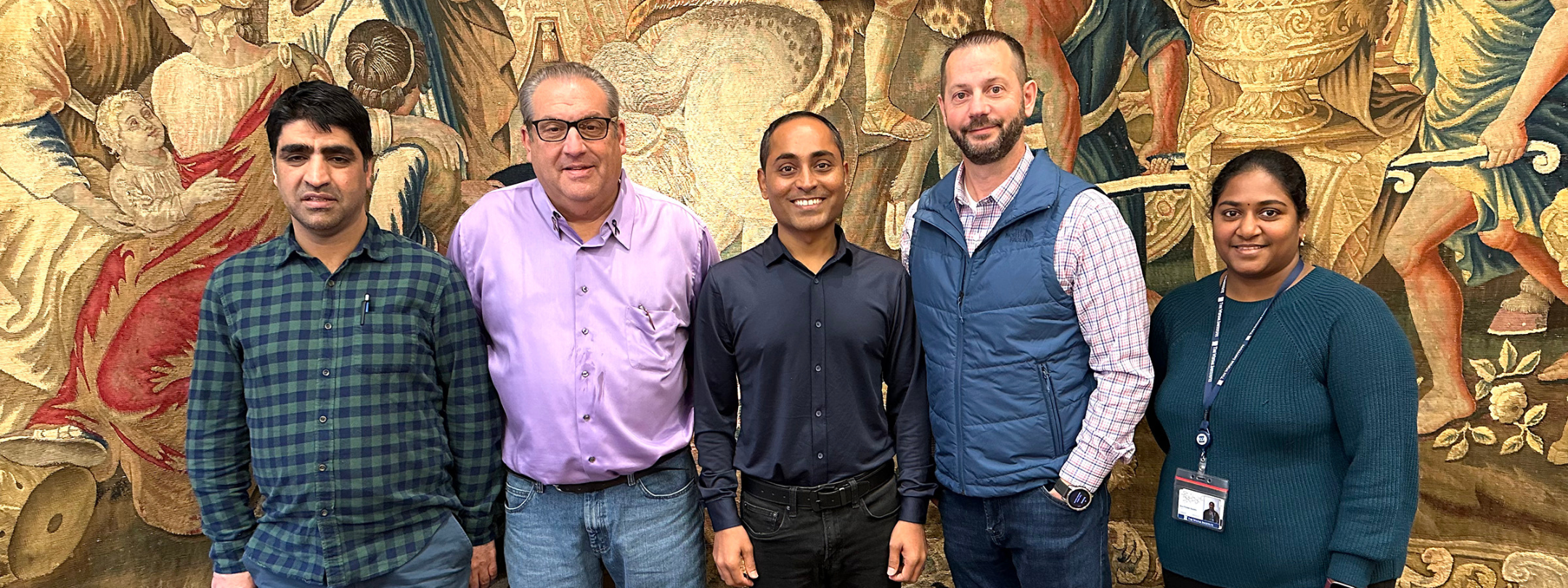The Wistar Institute’s Dr. Rahul Shinde Shares Hopes for Future of Pancreatic Cancer Therapy
For Pancreatic Cancer Awareness Month, we sat down with Rahul S. Shinde, D.V.M., Ph.D., assistant professor in Wistar’s Ellen and Ronald Caplan Cancer Center who researches potential new therapies for treatment-resistant cancers like pancreatic cancer.
Why is pancreatic cancer so deadly and prognosis so poor, with only about 13% of people diagnosed going on to survive the next five years?
Actually, although we now have a 13% 5-year survival rate that may seem low, it nevertheless represents a vast improvement over what the outlook used to be. Just a few decades ago, that 13% was closer to 5%. We know that significant improvements are possible, but we urgently need to improve clinical outcomes.
Pancreatic cancer poses a large threat for a few reasons.
- Pancreatic cancer tends to be diagnosed at later stages. A tumor in an internal organ is not immediately apparent in the same way that, for example, a suspicious mole might be, and surgery at those later stages — which is not always an option — tends to have a lower success rate.
- Pancreatic cancer develops very stubborn resistance to therapy.
In my lab, we’re focused on understanding how we might develop new therapies by investigating the gut microbiome.
What role does the gut microbiome play in pancreatic cancer?
The gut microbiome, which is a shorthand term for all the diverse microbes, bacteria, etc. that are present within the intestinal tract, can influence different systems throughout the body, including tumors. Tumors are the ultimate biological survivors: they are constantly looking for ways to improve their capacity to grow.
As signals from the gut microbiome travel throughout the body, tumors can incorporate any signals that might be to their advantage. We are focused on identifying key microbial signals that indirectly contribute to enabling a hospitable environment for pancreatic cancer to grow
Does that mean that diet plays a role in cancer risk?
Yes, we think diet plays a role. A key question is how what we eat or drink alters the microbial environment. That may sound like a simple question, but it’s actually quite complicated; for example, if you drink a cup of coffee right now, the composition of your gut microbiome will be drastically different in an hour than if you hadn’t.
Now apply that complexity to everything that every person eats or drinks. We each carry vastly different and constantly changing microbial genomes. Even though the genome of every human on Earth is 99% identical, the composition of the microbiome from person to person can vary as much as 80% or 90%.
Our lab focuses on interventions that impact the crosstalk between pancreatic cancer and the gut microbiome. That intervention could be a diet change; a microbiome-targeted therapy; or disruption of the cancer’s metabolism so it doesn’t benefit as much from microbial proteins.
By identifying which signals from the gut microbiome can cause cancer to benefit or harmful immune cells to proliferate in the tumor, we can develop strategies to disrupt those cancer-causing signals.
You mentioned harmful immune cells in tumors as a problem in pancreatic cancer. But don’t immune cells kill cancer?
Like almost everything in biology, whether immune cells are good or bad for cancer depends on the context. When cancer starts to grow, the immune system responds by sending macrophages to fight the cancer — and that is a good thing.
But if a tumor has developed, that means the immune system’s first line of defense has already failed. By that point, the macrophages in and around the tumor have stopped hindering it and have begun to help the tumor.
Tumor-associated macrophages can be thought of almost like traitors: instead of fighting cancer, they have been reprogrammed to help the cancer grow and resist treatment. That reprogramming process can be sped up or worsened by harmful signals from the gut microbiome, which is what we aim to stop.
What makes you hopeful about the future of pancreatic cancer research?
I’m hopeful for our ability to fight cancer because, more than ever before, researchers are armed with access to data of a quantity and quality that would have been unimaginable years ago. With modern analysis techniques — from genome-wide analysis to wide-ranging bioinformatics support — we are beginning to find patterns within the noise. Science is only becoming more collaborative. I’m confident that, working together, we can assemble the pieces of the cancer puzzle.






